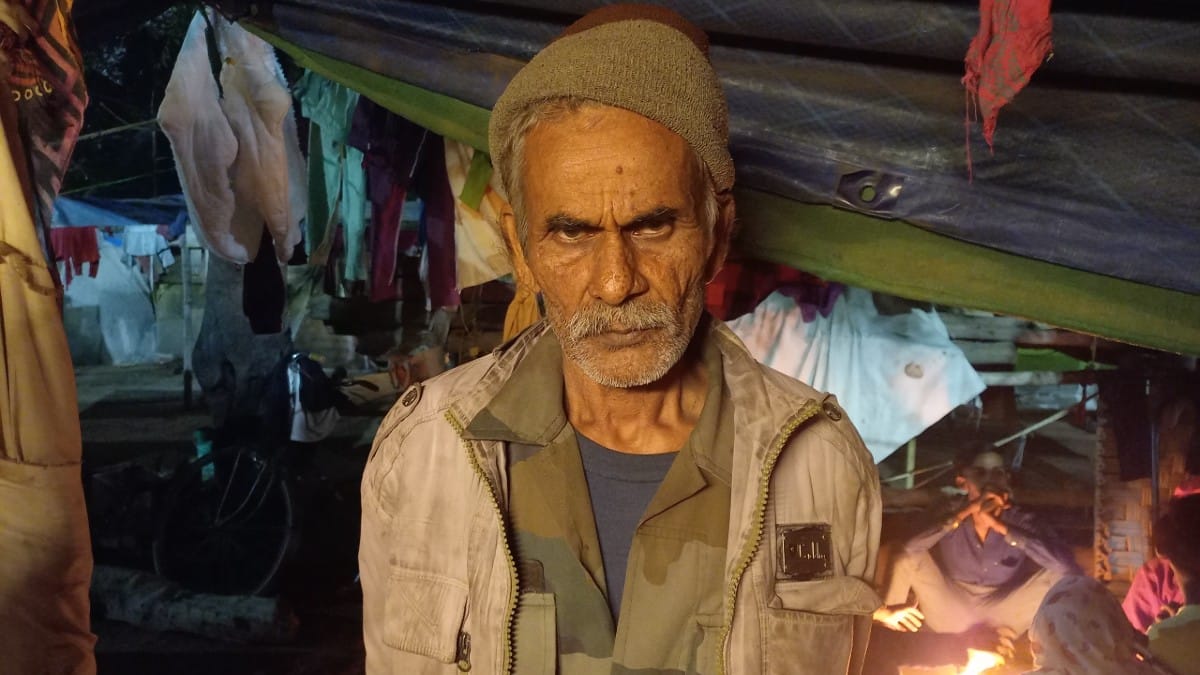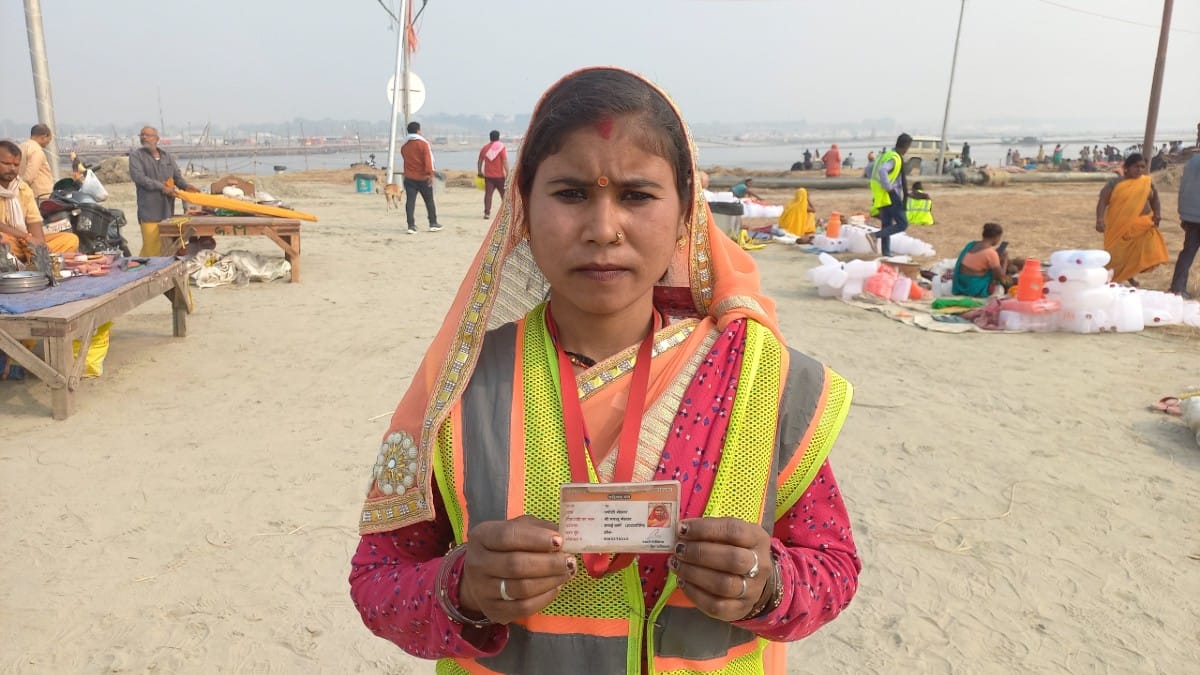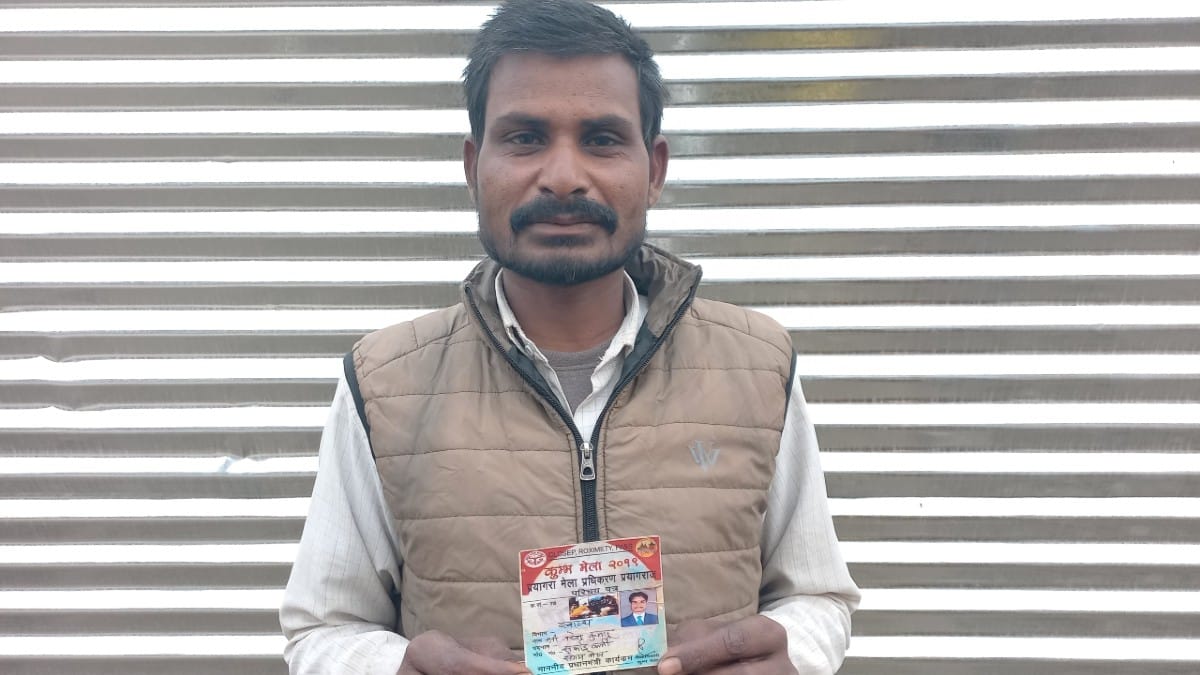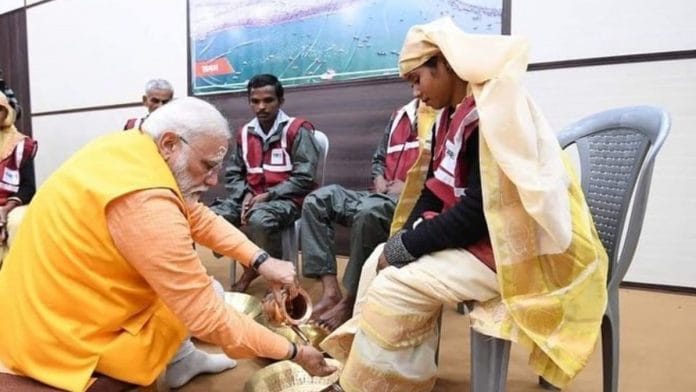Prayagraj: For Jyoti Mehtar, not much has changed for the better since that day in February 2019. “We are still discriminated against even though the most powerful leader in the country washed our feet,” says the 30-year-old sanitation worker from Korba.
The feeling is shared by three other sanitation workers who, along with Jyoti, were huddled together in a room at the 2019 Kumbh Mela in Prayagraj where Prime Minister Narendra Modi washed their feet. The gesture was also viewed from a political lens, given that all five sanitation workers were Dalits and the general election was less than three months away.
Of the five sanitation workers, Pyare Lal, Naresh Kumar and Chaubi were from Uttar Pradesh’s Banda, Hori Lal from Sambhal and Jyoti Mehtar from Chhattisgarh’s Korba.
With the Maha Kumbh set to commence in Prayagraj, three of the five are back on duty. Of the remaining two, Hori Lal returned to his village and Chaubi passed away; as next of kin, her job was passed on to her husband.
As contractual employees, Pyare Lal, Naresh Kumar and Jyoti Mehtar fear a bleak future once the Maha Kumbh concludes in February.
‘In the end, caste matters’
“Now, this grand Maha Kumbh is being organised, there are so many ads of ‘luxurious Kumbh’ but did anything change for us sanitation workers,” asks 56-year-old Pyare Lal. “We have been watching ads for Tent City, but nothing has changed in our tents,” he says, adding that he lives with his family in a makeshift house on one corner of the Maha Kumbh.
“There is no proper power or water supply. If it rains heavily, it would be difficult to stay here, but no one will see this. We are still untouchable by caste and also by facilities. These hoardings are for big people, not for us,” he adds.

Fellow sanitation worker Naresh Kumar, 34, claims caste discrimination is still an issue, even at the Maha Kumbh. “I belong to the Valmiki community. I don’t remember any higher caste person eating with us.” He adds, “We have not been invited to go inside any Akhara or any other religious activity related to Kumbh. In the end, caste matters.”
Want higher pay, permanent jobs
Jyoti, who is a Class 8 dropout, and her husband say they decided to relocate from Korba to Prayagraj in 2019 “in hope of a better life”. They say they applied for a house under the Pradhan Mantri Awas Yojana (PMAY), but are yet to hear back. “We live in a slum. We could not get a house elsewhere since we belong to a community of sanitation workers.”

Pyare Lal, too, says he applied for a house under PM Awas Yojana—twice. But his application is still under consideration. Having worked as a sanitation worker at Kumbh Melas organised since the late ‘90s, he wants the administration to “at least increase our salaries once every five years”.
Of his eight children, five daughters are now married and three sons work as daily wage labourers.
Naresh says he too applied for a house under PM Awas Yojana back in his village in Banda, but is yet to hear back. “I was getting Rs 8,000 in 2019; now almost Rs 10,000. I have five children and a wife at home. How can I manage with such a small amount? Whenever we ask officials to increase our salaries, or make us permanent, we do not get a positive response.”

Asked about allotment of homes under PM Awas Yojana for Pyare Lal and Naresh Kumar, Banda DM Nagendra Pratap Singh told ThePrint over the phone, “I have forwarded their details to CDO (chief development officer). If they have applied with proper documents, they would get houses. They can contact us directly.”
ThePrint also reached the Uttar Pradesh Chief Minister’s Office (CMO) for a response on claims about the facilities for contractual sanitation workers at Maha Kumbh, and was directed to the Mela kshetra officials—since they have been granted the powers of a divisional magistrate for the duration of the Maha Kumbh.
Mela in-charge and District Magistrate Vijay Kiran Anand told ThePrint, “It is not correct to say that Mela officials have not done anything for them in six years. We have increased their honorarium, provided them with free food, free jackets in winters. We are giving free education to their children.” He added, “There is a place for them in the Mela kshetra to live. What more can we do? See, social issues are not in our control. We cannot monitor each and every aspect but we tried to provide them with all facilities.”
Anand also said that if the PMO directs them to arrange another interaction between Modi and the sanitation workers, “we will take them to meet; it’s not in our hands”.
Additional Mela Adhikari Vivek Chaturvedi said, “We have a colony for sanitation workers and government schools for their children. If they claim we are not taking care of them, then it is wrong. We will speak to them again about why they are annoyed.”
Meanwhile, Pyare Lal, Naresh Kumar and Jyoti Mehtar are hopeful of meeting Modi again. They say they will apprise the Prime Minister of the challenges they face on a daily basis. As Jyoti puts it, “Samman se pet nahin bharta; samaaj bhi toh apnaae humein (respect can’t keep one’s stomach full; the society must also accept us).”
(Edited by Amrtansh Arora)






